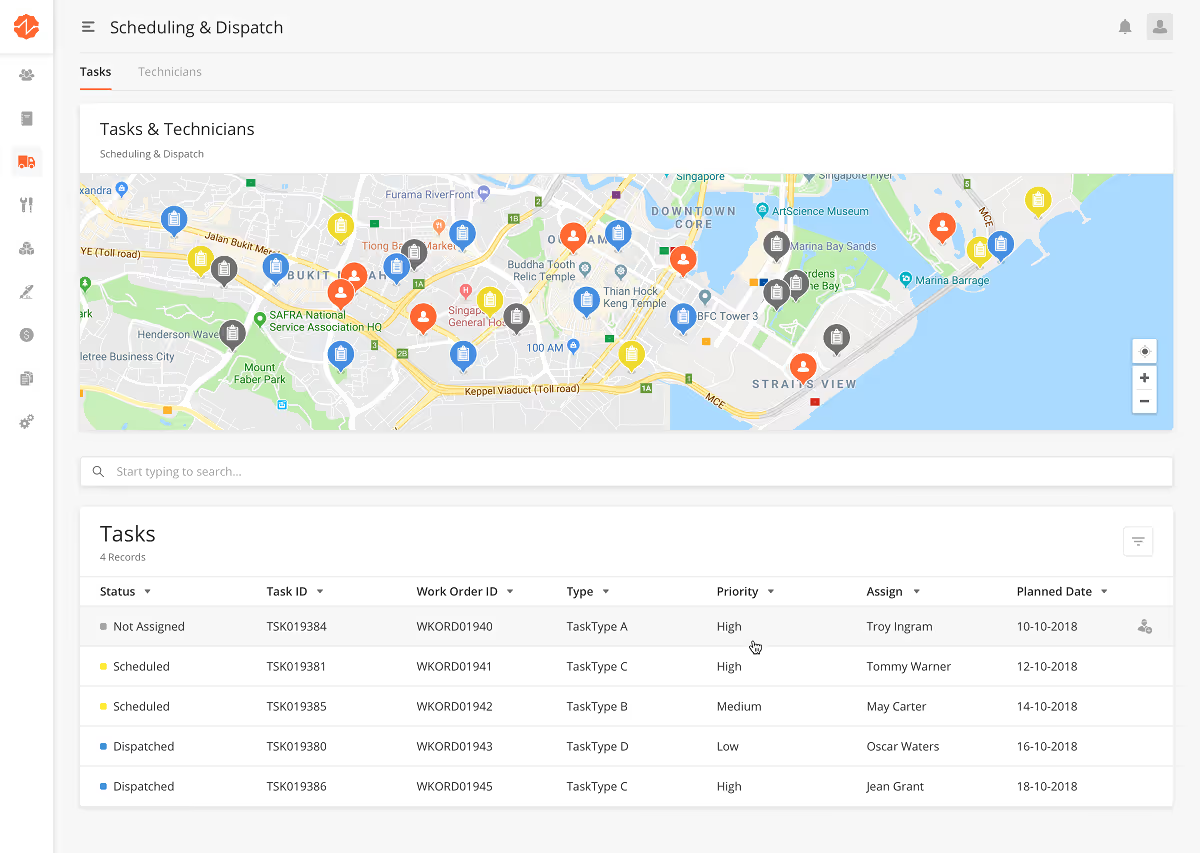Listen now
NGP Capital recently made an investment in Zinier, a field service automation platform that uses AI to deliver a smart, touchless field service experience to enterprises. Using a modern, cloud-native architecture, and a delightful mobile-first end-user experience, Zinier is finally helping companies realize the true potential of field service.
The market opportunity and challenges
Field Service Management Software (FSM) focuses on the management of workers deployed on customer sites (in the field) to accomplish deployment and maintenance tasks. Activities include scheduling and dispatching work, matching tasks and workers, monitoring outcomes, and integrating these activities with enterprise back-office systems.
The field service industry is very large, encompassing 20 million field technicians spread around the world, who maintain everything from hospital equipment to office elevators, heavy manufacturing machines and wind farm turbines, and telecom equipment. As the quantity of connected devices and machinery in the field increases, there will be increased demand for on-demand and scheduled field visits.
However even in 2019, most field work is done by phone or using pen and paper. The FSM landscape is characterized by a highly fragmented landscape of vendors, overwhelmingly with on-premise architectures, often with custom-built extensions running on traditional ERP systems.
"However even in 2019, most field work is done by phone or using pen and paper."
The significant work required to deploy these solutions on premise, and to customize them to the unique workflows of each enterprise, has often been a hindrance to the adoption and scaling of these solutions.
There has been significant consolidation in the industry over the last few years, as the first generation of FSM leaders (Click, ServiceMax, TOA Technologies, etc.) were acquired by major software incumbents. Most of these vendors were built on legacy architectures requiring high levels of customization work.
With the rapid growth and adoption of public cloud services, the proliferation of affordable smartphones, and the arrival of ubiquitous high-speed wireless connectivity, this sector is drawing a renewed focus within enterprises, as they seek to digitally integrate field workers in order to drive productivity.

Why did we invest in Zinier?
Our team has researched and met with many of the leading FSM vendors over the last three years. We held back from investing in many of the significant players because of concerns about their legacy architectures and the extensive customization required to deploy their solutions.
"We held back from investing in many of the significant players because of concerns about their legacy architectures and the extensive customization required to deploy their solutions."
Zinier has addressed many of the issues that have inhibited the scaling of field service automation. The company has built a cloud-native software platform that is pre-integrated with enterprise resource planning systems, and a modern, highly flexible and modular microservices architecture that allows enterprises to customize their 100+ unique workflows with no coding and without requiring system integrators.
The mobile user interface is built to make the field worker experience as intuitive and elegant as a consumer mobile application. As a result, enterprise customers can become productive in weeks, rather than months.
"The mobile user interface is built to make the field worker experience as intuitive and elegant as a consumer mobile application."
Evidence of Zinier’s ability to scale is shown by their success in the Telecom vertical, where they have customers across both emerging and developed markets. Telecom workflows tend to be unique to each customer, and Zinier has demonstrated an ability to go into full production within weeks with many of these demanding clients.
The founding team at Zinier brings a unique set of capabilities into this industry, which has helped the company create additional competitive advantages. The Founder and CEO, Arka Dhar, an engineering graduate from MIT, brings deep expertise in cloud computing and artificial intelligence.
Co-Founder and Chief Product Officer, Andrew Wolf, a graduate of Stanford’s Product Design program, has worked extensively in applying design thinking to help build solutions for both leading consumers and enterprises around the world.
Together, they bring expertise in creating highly scalable industrial-strength technology backend, and a consumer-quality user experience for their enterprise end users. This recognition of the potential of Zinier and its team has attracted other quality investors such as Accel, Founders Fund, and Qualcomm Ventures.
"Together, they bring expertise in creating highly scalable industrial-strength technology backend, and a consumer-quality user experience for their enterprise end users."
As global investors, with deep domain expertise in Telecoms, we are excited to invest in and partner with Zinier, and we look forward to working with them to help scale their business globally.

.svg)






.svg)






